#russian invasion of ukraine 2022
Text
youtube
#russian invasion of ukraine#russian invasion of ukraine map#russian invasion of ukraine every day#russian invasion of ukraine news#russian invasion of ukraine day 1#russian invasion of ukraine kings and generals#russian invasion of ukraine balkan mapping#russian invasion of ukraine 2022#russian invasion of ukraine countryballs#russian invasion of ukraine timelapse#russian invasion of ukraine map every day#russian invasion of ukraine animation#Youtube
0 notes
Text

2024 stamp that commemorates the russian warship, go fuck yourself! encounter on Snake Island in the Black Sea on the 24th of February 2022, during the russian invasion of Ukraine.
#russian invasion of ukraine#russia#ukraine#current events#war in ukraine#russian aggression#stamps#snake island#black sea#war in europe#2022#2024#2020s
161 notes
·
View notes
Text
Much of the public discussion of Ukraine reveals a tendency to patronize that country and others that escaped Russian rule. As Toomas Ilves, a former president of Estonia, acidly observed, “When I was at university in the mid-1970s, no one referred to Germany as ‘the former Third Reich.’ And yet today, more than 30 years after the fall of the Berlin Wall, we keep on being referred to as ‘former Soviet bloc countries.’” Tropes about Ukrainian corruption abound, not without reason—but one may also legitimately ask why so many members of Congress enter the House or Senate with modest means and leave as multimillionaires, or why the children of U.S. presidents make fortunes off foreign countries, or, for that matter, why building in New York City is so infernally expensive.
The latest, richest example of Western condescension came in a report by German military intelligence that complains that although the Ukrainians are good students in their training courses, they are not following Western doctrine and, worse, are promoting officers on the basis of combat experience rather than theoretical knowledge. Similar, if less cutting, views have leaked out of the Pentagon.
Criticism by the German military of any country’s combat performance may be taken with a grain of salt. After all, the Bundeswehr has not seen serious combat in nearly eight decades. In Afghanistan, Germany was notorious for having considerably fewer than 10 percent of its thousands of in-country troops outside the wire of its forward operating bases at any time. One might further observe that when, long ago, the German army did fight wars, it, too, tended to promote experienced and successful combat leaders, as wartime armies usually do.
American complaints about the pace of Ukraine’s counteroffensive and its failure to achieve rapid breakthroughs are similarly misplaced. The Ukrainians indeed received a diverse array of tanks and armored vehicles, but they have far less mine-clearing equipment than they need. They tried doing it our way—attempting to pierce dense Russian defenses and break out into open territory—and paid a price. After 10 days they decided to take a different approach, more careful and incremental, and better suited to their own capabilities (particularly their precision long-range weapons) and the challenge they faced. That is, by historical standards, fast adaptation. By contrast, the United States Army took a good four years to develop an operational approach to counterinsurgency in Iraq that yielded success in defeating the remnants of the Baathist regime and al-Qaeda-oriented terrorists.
A besetting sin of big militaries, particularly America’s, is to think that their way is either the best way or the only way. As a result of this assumption, the United States builds inferior, mirror-image militaries in smaller allies facing insurgency or external threat. These forces tend to fail because they are unsuited to their environment or simply lack the resources that the U.S. military possesses in plenty. The Vietnamese and, later, the Afghan armies are good examples of this tendency—and Washington’s postwar bad-mouthing of its slaughtered clients, rather than critical self-examination of what it set them up for, is reprehensible.
The Ukrainians are now fighting a slow, patient war in which they are dismantling Russian artillery, ammunition depots, and command posts without weapons such as American ATACMS and German Taurus missiles that would make this sensible approach faster and more effective. They know far more about fighting Russians than anyone in any Western military knows, and they are experiencing a combat environment that no Western military has encountered since World War II. Modesty, never an American strong suit, is in order.
— Western Diplomats Need to Stop Whining About Ukraine
#eliot a. cohen#current events#politics#ukrainian politics#american politics#warfare#strategy#tactics#diplomacy#russo-ukrainian war#2022 russian invasion of ukraine#war in afghanistan#vietnam war#ukraine#usa#toomas hendrik ilves
505 notes
·
View notes
Text
Fire Support Group "Omega Wings "
Intense fire support is a crucial component for the successful conduct of operations and the effectiveness of military tasks
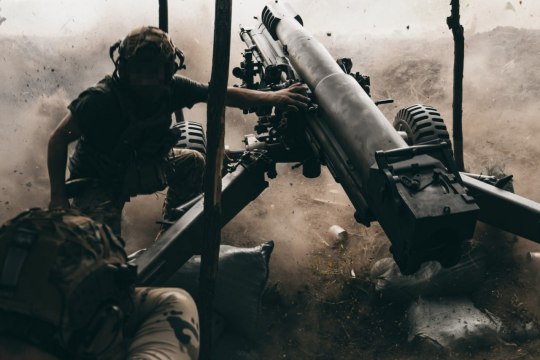
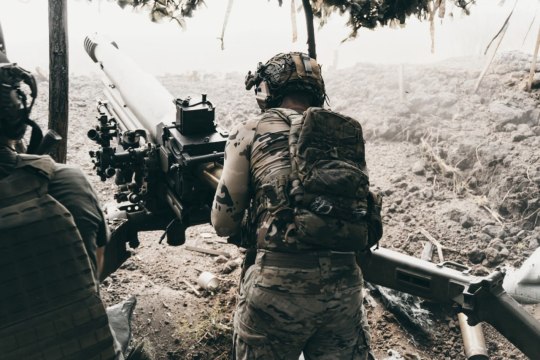
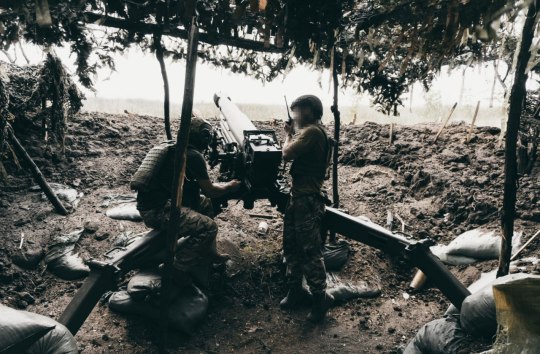
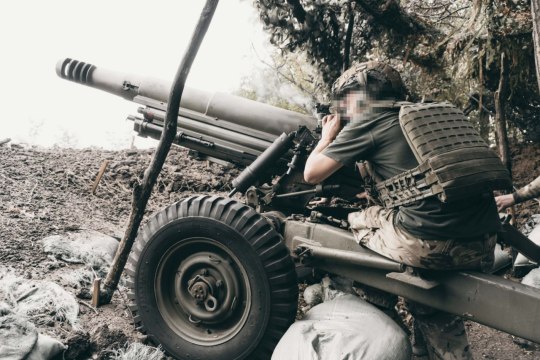
#ukraine#war in ukraine#war 2022 2024#pray for ukraine#pray for ukrainians#pray for ukrainian soldiers#ukrainian soldiers#military#fire support#omega#крила омеги#слава героям україни#ukraine under attack#war#ukrainians#stand with ukraine#support ukraine#fire support group#нацгвардія#national guard#нгу#fight for freedom#spirit of freedom#freedom for ukraine#russia is a terrorist state#russian invasion of ukraine#battlefield#battleground#russia must burn#war photography
30 notes
·
View notes
Text
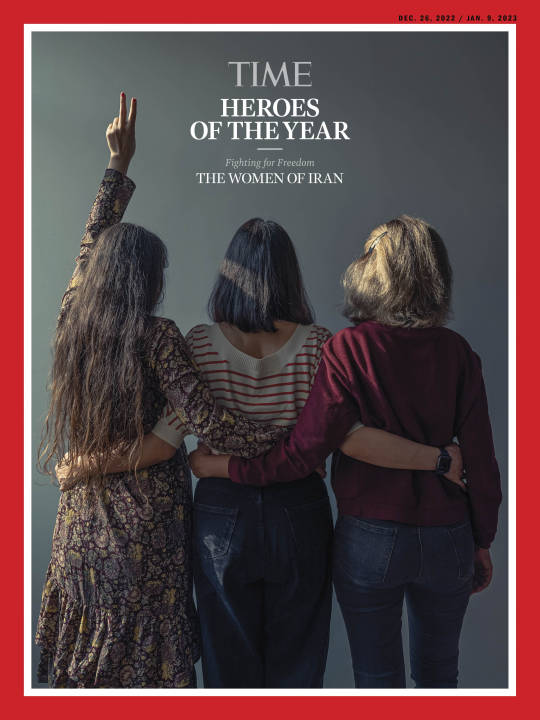

TIME's 2022 Heroes l Person of the Year
Only in the darkness can you see the stars. —Martin Luther King Jr.
#time magazine#december#2022#human rights#women rights#women life freedom#iran#iranian women#ukraine#russia#war#russian invasion#volodymyr zelensky#masha amini#timepoy
978 notes
·
View notes
Text
"Ukrainians who stayed on to work at the plant say they did so under duress. Employees report that Russian occupiers coerced them into adopting Russian citizenship and signing contracts with Rosatom. According to a recent IAEA report, the plant has announced that workers still officially employed by Energoatom, Ukraine’s state nuclear company, are barred from the site. The workforce “now consists of former Energoatom employees who have adopted Russian citizenship and signed employment contracts with the Russian operating entity, as well as staff who have been sent to the ZNPP from the Russian Federation.”
On top of that, current and former employees of the ZNPP, some of whom escaped past enemy lines, have said that Russia brutalized the plant’s dwindling workforce, resorting to torture to keep workers in line.They also report that Russia is violating international law by using the plant as a military staging ground, further increasing the risks to the facility. This claim has been supported by satellite evidence.
From the start of the war, Energoatom has objected to the occupation of the ZNPP, and raised alarms about the dangers the plant faces. Recently, the IAEA has also issued warnings about the degrading state of the ZNPP and the continued potential for a meltdown. In February, it issued a bulletin warning that the plant’s last backup external power line had been disrupted, creating a “precarious” situation. Today, the IAEA’s director general, Rafael Mariano Grossi, met with President Vladimir Putin and Alexei Likhachev, the head of Rosatom, in a closed-door session to discuss his concerns about the plant. But the agency has thus far been ineffectual in compelling Russia to cooperate, and its authority does not extend to claims of human-rights abuses away from the plant, even when they involve employees.
The result is a crisis unprecedented in the history of nuclear power. A disaster at the facility would be most immediately harmful to the people living near it. But the ZNPP is located in the watershed of the Dnipro River, which flows through southern Ukraine and into the Black Sea. If a meltdown occurs at the ZNPP and affects the waterways, experts indicate that all of southern Ukraine might be at risk for contamination.
...
In their stories of working at the ZNPP after the Russian occupation began, several sources describe incidents of detentions, interrogations, and torture. Kostiantyn Chebaievskyi worked at the ZNPP until August 2022, when he says he was arrested at the end of his shift and imprisoned by Russians. Chebaievskyi says that he was accused of communicating with Ukrainian authorities and that interrogators beat him and tried to force him to make a false confession. Other people employed at the ZNPP at the time say that cells intended to hold four to six people were used to detain up to 20 prisoners without any food, save what their relatives were able to bring on visits.
Chebaievskyi says that one form of torture involved what his captors called “a phone call to Lenin.” According to Chebaievskyi, the men would clip one cable to his earlobe and another to his finger, and then interrogate him while they turned the crank on a modified field telephone that would deliver a shock. “Everything goes dark,” he said. “All that you see is white lighting.” Chebaievskyi said that the interrogators repeated the procedure over and over, demanding to know his supposed contact in Ukraine. He also reported that some prisoners were forced to give interviews for Russian television crews, reciting prewritten scripts that were complimentary toward Russia. Chebaievskyi was released after 18 days, and then managed to escape from the city.
Other ZNPP employees corroborate allegations of abuse and torture. Volodymyr Zhaivoronok is a 50-year-old former equipment operator who says he was imprisoned for 53 days, many of them in the same cell where Chebaievskyi ended up. Zhaivoronok says Russian personnel beat the prisoners, targeting their backs, necks, and shoulders. “One is bringing you into the room, and another six people come there,” Zhaivoronok told me and my colleagues at the Reckoning Project. “They come in with batons, pistols.” He recalled that the torture room was covered in blood, and prisoners were forced to clean it. Zhaivoronok said that during one of the sessions, his torturers shot him in the side with a rubber bullet.
...
ZNPP employees claimed in 2022 that their plant also became a shield [like Chernobyl]. They reported that they heard what they believed to be Russian mortar shells launched from within or near ZNPP territory, and also saw Russian military equipment in crucial locations of the plant, including turbine halls near reactors. This equipment included armored personnel carriers and trucks, tanks, anti-aircraft systems, and rocket launchers. These sources also stated that Russian soldiers—possibly hundreds of them—have been deployed to the plant, and have complete access to spaces designated for evacuation and sheltering. These claims were supported in a September 2023 report, commissioned by Greenpeace, that used satellite imagery to identify signs of military activity in the vicinity of the plant. An accident involving military equipment and ordnance could damage the systems needed to cool the reactors, and could lead to a leak of radioactive material.
The operation of Zaporizhzhia, like that of all nuclear-power plants, is subject to international law, and to regular inspections by the IAEA, a treaty organization that reports to the United Nations. Since the beginning of the occupation, the IAEA and its director general, Grossi, have made several visits to Ukraine and to the ZNPP in particular, and have offered ongoing assistance to the plant’s administrators. In May, Grossi told the UN Security Council that the situation at the ZNPP “continues to be extremely fragile and dangerous,” and noted that the plant did not have enough staff to maintain safety measures, even with the reactors shut down. Grossi added that there had been seven occasions since the occupation began when the plant lost off-site power and had to rely on diesel generators, “the last line of defence against a nuclear accident.” (The plant has since suffered another external power loss.) In that address, Grossi asked that Russia abide by certain principles in its operation of the plant, including refraining from using it for military weapon storage."
- Nataliya Gumenyuk, "Looming Disaster at the Zaporizhzhia Nuclear Power Plant," The Atlantic. March 6, 2024.
#zaporizhzhia nuclear power plant#nuclear power plant#zaporizhzhia#international atomic energy agency#russia-ukraine war 2022#russian invasion of ukraine#prisoners of war#torture#military occupation#energoatom#rosatom
44 notes
·
View notes
Text
Imagine that someone—perhaps a man from Florida, or maybe even a governor of Florida—criticized American support for Ukraine. Imagine that this person dismissed the war between Russia and Ukraine as a purely local matter, of no broader significance. Imagine that this person even told a far-right television personality that “while the U.S. has many vital national interests ... becoming further entangled in a territorial dispute between Ukraine and Russia is not one of them.” How would a Ukrainian respond? More to the point, how would the leader of Ukraine respond?
As it happens, an opportunity to ask that hypothetical question recently availed itself. The chair of the board of directors of The Atlantic, Laurene Powell Jobs; The Atlantic’s editor in chief, Jeffrey Goldberg; and I interviewed President Volodymyr Zelensky several days ago in the presidential palace in Kyiv. In the course of an hour-long conversation, Goldberg asked Zelensky what he would say to someone, perhaps a governor of Florida, who wonders why Americans should help Ukraine.
Zelensky, answering in English, told us that he would respond pragmatically. He didn’t want to appeal to the hearts of Americans, in other words, but to their heads. Were Americans to cut off Ukraine from ammunition and weapons, after all, there would be clear consequences in the real world, first for Ukraine’s neighbors but then for others:
If we will not have enough weapons, that means we will be weak. If we will be weak, they will occupy us. If they occupy us, they will be on the borders of Moldova and they will occupy Moldova. When they have occupied Moldova, they will [travel through] Belarus and they will occupy Latvia, Lithuania, and Estonia. That’s three Baltic countries which are members of NATO. They will occupy them. Of course, [the Balts] are brave people, and they will fight. But they are small. And they don’t have nuclear weapons. So they will be attacked by Russians because that is the policy of Russia, to take back all the countries which have been previously part of the Soviet Union.
And after that, if there were still no further response? Then, he explained, the struggle would continue:
When they will occupy NATO countries, and also be on the borders of Poland and maybe fight with Poland, the question is: Will you send all your soldiers with weapons, all your pilots, all your ships? Will you send tanks and armored vehicles with your young people? Will you do it? Because if you will not do it, you will have no NATO.
At that point, he said, Americans will face a different choice: not politicians deciding whether “to give weapons or not to give weapons” to Ukrainians, but instead, “fathers and mothers” deciding whether to send their children to fight to keep a large part of the planet, filled with America’s allies and most important trading partners, from Russian occupation.
But there would be other consequences too. One of the most horrifying weapons that Russia has used against Ukraine is the Iranian-manufactured Shahed drone, which has no purpose other than to kill civilians. After these drones are used to subdue Ukraine, Zelensky asked, how long would it be before they are used against Israel? If Russia can attack a smaller neighbor with impunity, regimes such as Iran’s are sure to take note. So then the question arises again: “When they will try to occupy Israel, will the United States help Israel? That is the question. Very pragmatic.”
Finally, Zelensky posed a third question. During the war, Ukraine has been attacked by rockets, cruise missiles, ballistic missiles—“not hundreds, but thousands”:
So what will you do when Russia will use rockets to attack your allies, to [attack] civilian people? And what will you do when Russia, after that, if they do not see [opposition] from big countries like the United States? What will you do if they will use rockets on your territory?
And this was his answer: Help us fight them here, help us defeat them here, and you won’t have to fight them anywhere else. Help us preserve some kind of open, normal society, using our soldiers and not your soldiers. That will help you preserve your open, normal society, and that of others too. Help Ukraine fight Russia now so that no one else has to fight Russia later, and so that harder and more painful choices don’t have to be made down the line.
“It’s about nature. It’s about life,” he said. “That’s it.”
#current events#warfare#politics#russian politics#american politics#russo-ukrainian war#2022 russian invasion of ukraine#russia#ukraine#usa#volodymyr zelenskyy#ron desantis#nato
245 notes
·
View notes
Video
undefined
tumblr
All Along The Watchtower
Brothers in arms on an observation post watching for the enemy.
#2022 russian invasion of ukraine#2022 russia-ukraine news#ukraine#russia#brothers in arms#cat#caturday#cats on tumblr#friends#friends forever#friends for life#all along the watchtower#war#world at war#peace#peace for all#peace for ukraine
483 notes
·
View notes
Text
In 1942, answering a pacifist opponent of British involvement in the Second World War, George Orwell replied that “pacifism is objectively pro-fascist.” There have of course been many times in human history when opposition to war has been morally justified, intellectually coherent, and, in the end, vindicated. But the war to defeat fascism during the middle part of the past century was simply not one of them. “This is elementary common sense,” Orwell wrote at the time. “If you hamper the war effort of one side you automatically help that of the other.”
Eight decades later, as a fascistic Russian regime wages war against Ukraine, a motley collection of voices from across the political spectrum has called upon the United States and its allies to adopt neutrality as their position. Ranging from anti-imperialists on the left to isolationists on the right and more respectable “realists” in between, these critics are not pacifists in the strict sense of the term. Few if any oppose the use of force as a matter of principle. But nor are they neutral. It is not sufficient, they say, for the West to cut off its supply of defensive weaponry to Ukraine. It must also atone for “provoking” Russia to attack its smaller, peaceful, democratic neighbor, and work at finding a resolution that satisfies what Moscow calls its “legitimate security interests.” In this, today’s anti-war caucus is objectively pro-fascist.
To appreciate the bizarrely kaleidoscopic nature of this caucus, consider the career of a catchphrase. “Is Washington Fighting Russia Down to the Last Ukrainian?” asked the headline of a column self-published in March by Ron Paul, the former Republican congressman and presidential candidate. It was a strange question for Paul to be posing just three weeks into President Vladimir Putin’s unjustifiable and unforgivable invasion, especially considering the extraordinary lengths to which the Biden administration had gone to avoid “fighting Russia.”
Even stranger than Paul’s assertion that the U.S. was goading Ukrainians into sacrificing themselves on the altar of its Russophobic bloodlust, though, has been the proliferation of his specious talking point across the ideological spectrum.
Ten days after Paul accused his country of treating Ukrainians as cannon fodder, the retired American diplomat Chas Freeman repeated the quip. “We will fight to the last Ukrainian for Ukrainian independence,” Freeman declared sarcastically—even as he excused Russia’s “special military operation” as an understandable reaction to being “stiff-armed” by the West on the “28-year-old demands that NATO stop enlarging in the direction of Russia.” Freeman, a former U.S. ambassador to Saudi Arabia and a senior fellow at Brown University’s Watson Institute, made these remarks in an interview with The GrayZone, a self-described “independent news website dedicated to original investigative journalism and analysis on politics and empire.”
Although The GrayZone would characterize itself as an “anti-imperialist” news source, the opaquely financed publication is highly selective in the empires it chooses to scrutinize; it is difficult to find criticism of Russia or China—or any other American adversary—on its site. A more accurate descriptor of its ideological outlook is “campist,” denoting a segment of the sectarian far left that sees the world as divided into two camps: the imperialist West and the anti-imperialist rest.
Freeman, who served as Richard Nixon’s interpreter during his 1972 visit to China, seemed to feel at home in The GrayZone. In that Manichaean domain—one that lacks, naturally, any shades of gray—no anti-Western tyrant is too brutal for fawning adulation, and America is always to blame. A Republican foreign-policy hand in conversation with a fringe leftist website might seem like an odd pairing, but Freeman has a fondness for dictators.
In 2009, when Freeman was appointed to serve on the National Intelligence Council during the first year of the Obama administration, a series of leaked emails revealed a window into his worldview. Observing the 20th anniversary of the Tiananmen Square massacre, Freeman praised the Chinese Communist Party for its bloody crackdown on peaceful student demonstrators; his only criticism of its dispersal of this “mob scene” was that it had been “overly cautious” in displaying “ill-conceived restraint.” It is quite something to read a retired American diplomat criticizing the Chinese regime for being too soft during the Tiananmen massacre, but such views are not as aberrational as they sound. Within the school of foreign-policy “realism,” notions of morality are seen as quaint distractions from the real business of great-power politics.
In April, it was Noam Chomsky’s turn to recite the Pauline mantra in a podcast with the editor of Current Affairs, a leftist magazine. Going out of his way to praise Freeman as “one of the most astute and respected figures in current U.S. diplomatic circles,” the world’s most famous radical intellectual endorsed the crusty veteran of realist GOP administrations for characterizing American policy in Eastern Europe as “fighting Russia to the last Ukrainian.”
From Chomsky’s mouth to Putin’s ears.
“A great deal is being said about the United States’ intention to fight against Russia ‘to the last Ukrainian’—they say it there and they say it here,” the Russian president mused the following week, prefacing his mention of the gibe with his own version of that Trumpian rhetorical flourish, “A lot of people are saying.” That same month, an American Conservative article by Doug Bandow of the libertarian Cato Institute was headlined “Washington Will Fight Russia to the Last Ukrainian,” denying Ukrainians any agency in their own struggle by answering the question Paul had rhetorically asked.
Soon after, the dean of realist international-relations theorists, the University of Chicago scholar John Mearsheimer, used the line as though he’d just thought of it. By then, the argument that America was “fighting Russia to the last Ukrainian” had ping-ponged between both ends of the ideological spectrum an astonishing number of times. The point for the anti-imperialist left and the isolationist right, as well as the realist fellow travelers hitched to each side, was that blame for the conflict lies mainly with the U.S., which is using Ukraine as a proxy for its nefarious interventionism in Moscow’s backyard.
That the fringe left would blame America—which it views as the source of all capitalist exploitation, military aggression, and imperialist evil in the world—for Russia’s invasion of Ukraine is predictable. It blames America for everything. When, two days after the Russian invasion began on February 24, the Democratic Socialists of America called upon “the US to withdraw from NATO and to end the imperialist expansionism that set the stage for this conflict,” mainstream Democrats condemned the statement. More significant has been the position taken by mainstream realists, who similarly fault the West for somehow “provoking” Russia into waging war on its neighbor. These politically disparate forces share more than a talking point. They also have a worldview in common.
Consider America’s leading realist think tank, the Quincy Institute for Responsible Statecraft. This “transpartisan” group enjoyed great fanfare upon its founding, in 2019, with seed funding from the libertarian Charles Koch and the left-wing George Soros. After two decades of “forever wars,” here at last was an ideologically diverse assortment of reasonable, sober-minded experts committed to pursuing a “foreign policy of restraint.” But counseling restraint as a rapacious, revisionist dictatorship wages total war on its smaller, democratic neighbor had a whiff of appeasement for at least one of Quincy’s fellows, leading to a split within the organization.
“The institute is ignoring the dangers and the horrors of Russia’s invasion and occupation,” Joe Cirincione, a nuclear non-proliferation expert and one of the group’s leading left-of-center scholars, said upon his resignation this summer, adding that Quincy “focuses almost exclusively on criticism of the United States, NATO, and Ukraine. They excuse Russia’s military threats and actions because they believe that they have been provoked by U.S. policies.”
The moral myopia Cirincione identifies is an essential trait of the new online magazine Compact, where self-styled anti-woke Marxists and Catholic theocrats unite in their loathing of classical liberal values at home and their opposition to defending those values abroad. In an article titled “Fueling Zelensky’s War Hurts America,” the left-wing writer Batya Ungar-Sargon took issue with the U.S. supplying defensive weaponry to Kyiv, arguing that resources devoted to supporting Ukrainians would be better spent helping economically disadvantaged Americans.
Pushing the United States to prioritize the needs of its poorest citizens, even if that means forgoing its responsibilities for maintaining the European security order, is at least an intellectually defensible position (if a shortsighted and reductive one). But Ungar-Sargon also went out of her way to give credence to Russia’s specious territorial claims.
“If Ukraine’s territorial integrity were of such immense national interest,” she wrote, “surely we would have climbed the rapid-escalation ladder back in 2014, when Moscow invaded and annexed Crimea—a move that a referendum found was popular among Crimeans.” The plebiscite Ungar-Sargon endorsed was held under Russian gunpoint to provide a legal fig leaf for the first armed annexation of territory on the European continent since World War II. She also identified Donetsk and Luhansk—the two Russian-backed separatist enclaves in Eastern Ukraine that Putin recognized as puppet states on the eve of his invasion and where he has now held similarly meaningless referenda annexing them to Russia—as “independent republics,” conferring a legitimacy that was in marked contrast to the way she referred dismissively to “the United States and its European satrapies.”
Many commentators have likened Volodymyr Zelensky to Winston Churchill for his charismatic resistance to foreign invaders and his ability to raise the morale of his people. In light of this popular association, the headline that the editors of Compact devised for Ungar-Sargon’s apologia—“Zelensky’s War”—is nauseating, blaming the victim while seeming to evoke the title of a notorious book by the Holocaust-denying historian David Irving, Churchill’s War.
Condemning the U.S. and its allies for the unfolding tragedy in Ukraine requires one to ignore or downplay a great deal of Russian misbehavior. This is a characteristic that unites left-wing anti-imperialists, right-wing isolationists, and the ostensibly more respectable “realists.”
“Russian President Vladimir Putin, the argument goes, annexed Crimea out of a long-standing desire to resuscitate the Soviet Empire, and he may eventually go after the rest of Ukraine as well as other countries in Eastern Europe,” Mearsheimer wrote in a 2014 essay titled “Why the Ukraine Crisis Is the West’s Fault.” “But this account is wrong.” Eight years on, as Russian forces marched toward Kyiv and Putin issued vague threats of nuclear escalation, Mearsheimer made no acknowledgment of how very wrong his own earlier, sanguine assessment of Putin’s intentions had been.
“We invented this story that Putin is highly aggressive and he’s principally responsible for this crisis in Ukraine,” he told The New Yorker a week into the invasion. Putin’s apparent goal of overthrowing Zelensky and installing a puppet regime would not be an example of “imperialism,” Mearsheimer argued, and was meaningfully different from “conquering and holding onto Kyiv.” All of this linguistic legerdemain would surely come as news to the Czechs, Poles, Slovaks, and other peoples of the region who once suffered under the Russian imperial yoke.
As evidence of Russian war crimes against Ukrainian civilians mounts, Mearsheimer has cleaved to his position that NATO enlargement is to blame for the war. “I think all the trouble in this case really started in April, 2008, at the NATO Summit in Bucharest, where afterward NATO issued a statement that said Ukraine and Georgia would become part of NATO,” he also told The New Yorker. Although the NATO communiqué did express the alliance’s hope that the two former Soviet republics would become members at some indefinite point in the future, it came after France and Germany had successfully blocked a proposal by the Bush administration to offer Ukraine and Georgia an actual path to membership. But even if the U.S. had made such a promise, how would that justify the invasion and occupation of Ukraine? Mearsheimer also ignores the 1994 Budapest Memorandum, according to which the United States, Britain, and Russia guaranteed Ukraine’s territorial integrity in exchange for Ukraine surrendering its nuclear weapons. This concord lasted for 20 years, until Putin abrogated it by invading and occupying Crimea.
Even more obtuse are the excuses for Russian aggression made by Mearsheimer’s fellow academic realist, the Columbia University professor Jeffrey Sachs. Sachs has worked as an adviser to a host of international institutions, such as the World Health Organization, the International Monetary Fund, and the World Bank, as a development economist. Unlike Mearsheimer, he has no particular expertise in foreign political affairs, but this has not stopped him from pronouncing on geopolitical issues. Last December, as Russia was amassing its forces on Ukraine’s border, Sachs suggested that “NATO should take Ukraine’s membership off the table, and Russia should forswear any invasion.” This ignored the fact that Russia had already invaded the country in 2014.
Seeking to explain “the West’s false narrative” about Ukraine after the war began, Sachs noted, “Since 1980 the US has been in at least 15 overseas wars of choice (Afghanistan, Iraq, Libya, Panama, Serbia, Syria and Yemen to name just a few), while China has been in none, and Russia only in one (Syria) beyond the former Soviet Union.” This sentence contains two significant qualifications. First, Sachs’s counting only those “wars of choice” that Russia waged “beyond the former Soviet Union” implies that its invasion of Georgia in 2008 and Ukraine in 2014 were permissible through some sort of Cold War–continuity droit de seigneur. Second, Sachs’s selection of 1980 as the starting point for his comparison conveniently excludes the Soviet invasion of Afghanistan, which began in December 1979 and became the Red Army’s own forever war, lasting almost 10 years and playing a crucial role in the Soviet Union’s demise.
Russia’s war against Ukraine has exposed the incompetence of the Russian military and the hubris of President Putin. It has also revealed the bravery and resilience of the Ukrainian people, who, contrary to Ron Paul’s ambulatory talking point, had no need of any American to prod or gull them into defending their homeland. Here in the U.S., the war has also exposed the intellectual and moral bankruptcy of an ideologically diverse set of foreign-policy commentators: the “anti-imperialists” who routinely justify blatant acts of imperial conquest, and the “realists” who make arguments unmoored from reality.
#current events#warfare#politics#american politics#russian politics#totalitarianism#fascism#ww2#russo-ukrainian war#2022 russian invasion of ukraine#annexation of crimea by the russian federation#budapest memorandum#2014 crimean status referendum#soviet-afghan war#russo-georgian war#usa#ukraine#russia#donestsk oblast#luhansk oblast#george orwell#ron paul#vladimir putin#chas w. freeman#noam chomsky#john mearsheimer#joseph cirincione#batya ungar-sargon#volodymyr zelenskyy#jeffrey sachs
3 notes
·
View notes
Text
Wanna see how Lviv looks like during wartime blackout? I got you covered! Photos taken on the day Kherson city was liberated, so many ppl were celebrating outside with lots of street music and singing!
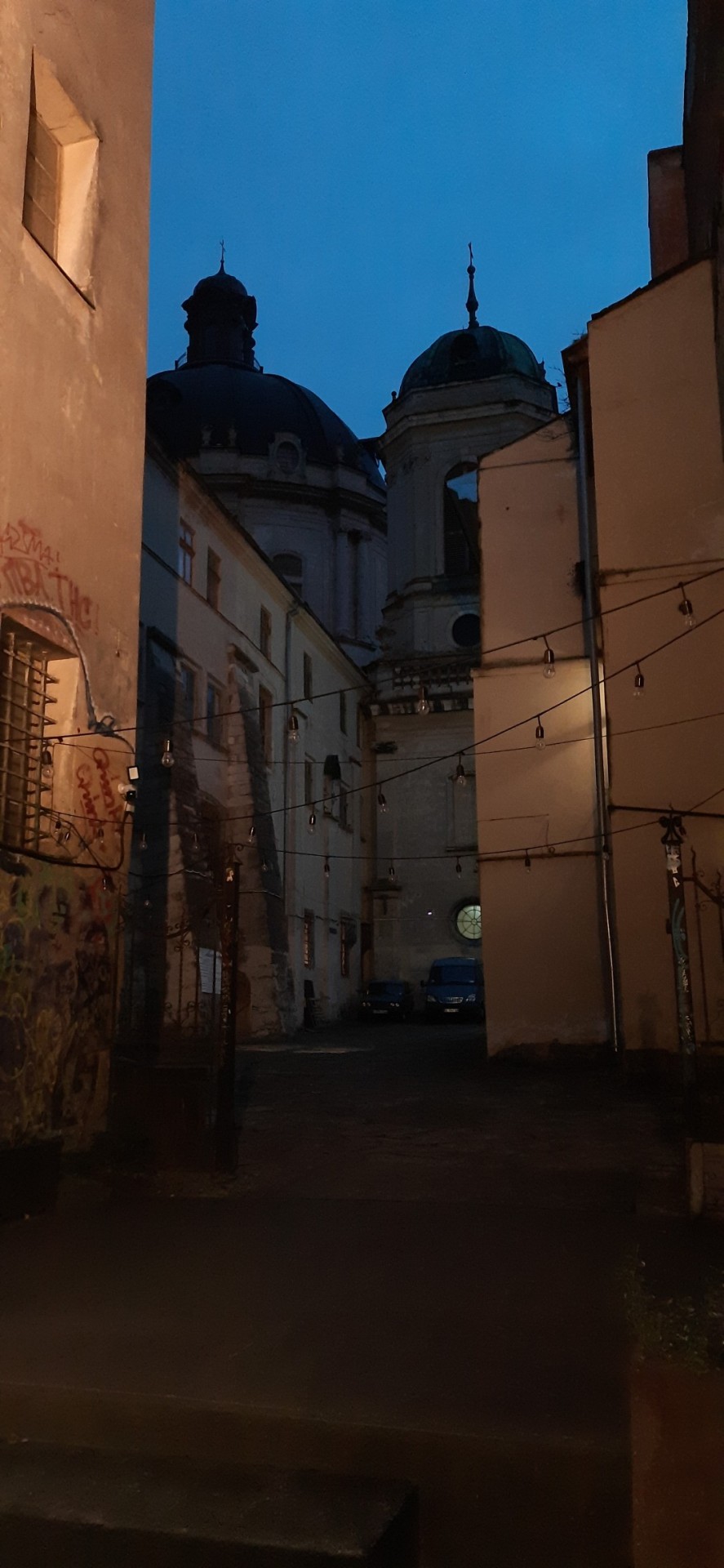


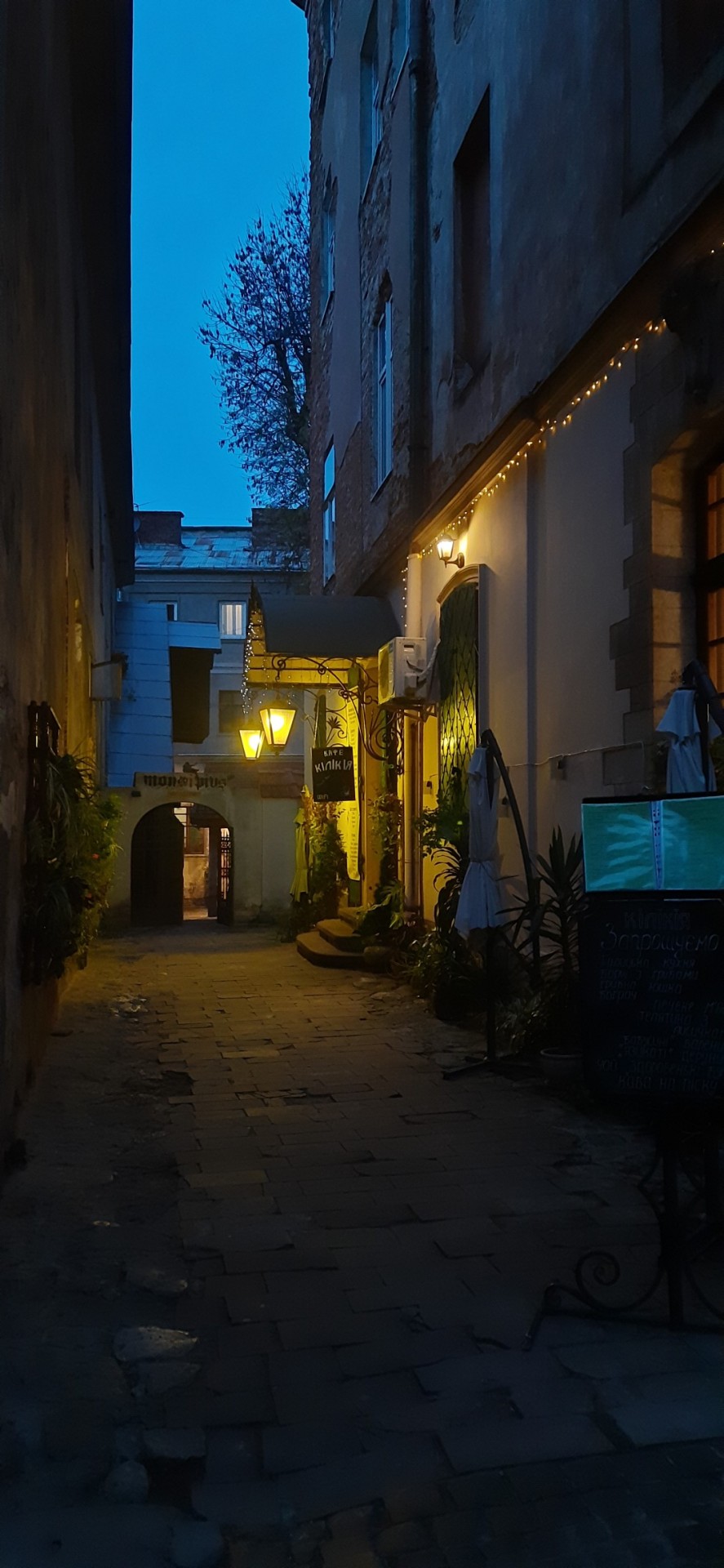
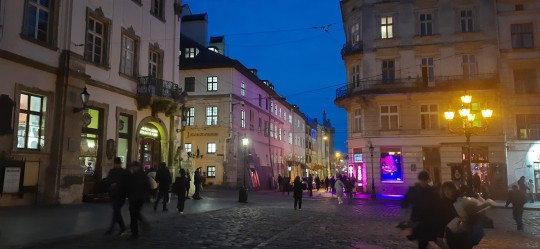
140 notes
·
View notes
Text

tchaikovsky didn't even live in the russian federation lmao the russian empire was a whole different state. can't believe tchaikovsky came back from the dead to support an invasion that happened over a century after his death done by a state that didn't even exist when he was alive. shame on him
#if you were boycotting tchaikovsky for the imperialism of the russian empire that would make more sense tho im not sure what the point of#culturally boycotting a dead empire that's already fallen is#doesnt have anything to do with the 2022 invasion of ukraine though lol
7 notes
·
View notes
Text

2023 stamp of Ukraine showing the destroyed Antonov An-225 Mriya rising from the ashes.
The aeroplane was destroyed by the invading russians in the Battle of Antonov Airport in February 2022.
The Mriya was the heaviest aircraft ever built and had largest wingspan of any operational aircraft.
#ukraine#russian invasion of ukraine#russia#aircraft#war in europe#war in ukraine#russian aggression#russian invasion#mriya#antonov#stamps#current events#2022#2023#2020s
118 notes
·
View notes
Text
In the terrible winter of 1932–33, brigades of Communist Party activists went house to house in the Ukrainian countryside, looking for food. The brigades were from Moscow, Kyiv, and Kharkiv, as well as villages down the road. They dug up gardens, broke open walls, and used long rods to poke up chimneys, searching for hidden grain. They watched for smoke coming from chimneys, because that might mean a family had hidden flour and was baking bread. They led away farm animals and confiscated tomato seedlings. After they left, Ukrainian peasants, deprived of food, ate rats, frogs, and boiled grass. They gnawed on tree bark and leather. Many resorted to cannibalism to stay alive. Some 4 million died of starvation.
At the time, the activists felt no guilt. Soviet propaganda had repeatedly told them that supposedly wealthy peasants, whom they called kulaks, were saboteurs and enemies—rich, stubborn landowners who were preventing the Soviet proletariat from achieving the utopia that its leaders had promised. The kulaks should be swept away, crushed like parasites or flies. Their food should be given to the workers in the cities, who deserved it more than they did. Years later, the Ukrainian-born Soviet defector Viktor Kravchenko wrote about what it was like to be part of one of those brigades. “To spare yourself mental agony you veil unpleasant truths from view by half-closing your eyes—and your mind,” he explained. “You make panicky excuses and shrug off knowledge with words like exaggeration and hysteria.”
He also described how political jargon and euphemisms helped camouflage the reality of what they were doing. His team spoke of the “peasant front” and the “kulak menace,” “village socialism” and “class resistance,” to avoid giving humanity to the people whose food they were stealing. Lev Kopelev, another Soviet writer who as a young man had served in an activist brigade in the countryside (later he spent years in the Gulag), had very similar reflections. He too had found that clichés and ideological language helped him hide what he was doing, even from himself:
I persuaded myself, explained to myself. I mustn’t give in to debilitating pity. We were realizing historical necessity. We were performing our revolutionary duty. We were obtaining grain for the socialist fatherland. For the five-year plan.
There was no need to feel sympathy for the peasants. They did not deserve to exist. Their rural riches would soon be the property of all.
But the kulaks were not rich; they were starving. The countryside was not wealthy; it was a wasteland. This is how Kravchenko described it in his memoirs, written many years later:
Large quantities of implements and machinery, which had once been cared for like so many jewels by their private owners, now lay scattered under the open skies, dirty, rusting and out of repair. Emaciated cows and horses, crusted with manure, wandered through the yard. Chickens, geese and ducks were digging in flocks in the unthreshed grain.
That reality, a reality he had seen with his own eyes, was strong enough to remain in his memory. But at the time he experienced it, he was able to convince himself of the opposite. Vasily Grossman, another Soviet writer, gives these words to a character in his novel Everything Flows:
I’m no longer under a spell, I can see now that the kulaks were human beings. But why was my heart so frozen at the time? When such terrible things were being done, when such suffering was going on all around me? And the truth is that I truly didn’t think of them as human beings. “They’re not human beings, they’re kulak trash”—that’s what I heard again and again, that’s what everyone kept repeating.
— Ukraine and the Words That Lead to Mass Murder
#anne applebaum#ukraine and the words that lead to mass murder#current events#history#politics#russian politics#sociology#psychology#communism#warfare#totalitarianism#propaganda#holodomor#russo-ukrainian war#2022 russian invasion of ukraine#russia#ukraine#viktor kravchenko#lev kopelev#vasily grossman#kulaks
266 notes
·
View notes
Text
War In Ukraine





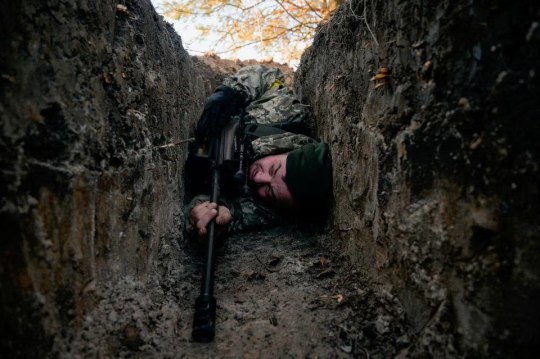
#hard times#war time#war photography#war 2022 2023#war 2022#ukraine#ukrainians#save ukraine#pray for ukraine#pray for ukrainian armed forces#pray for ukrainian soldiers#pray for ukrainians#stand with ukraine#war in ukraine#russia invaded ukraine#russian invasion on ukraine#war#stop war#war is hard#faces#emotions#ukrainians on tumblr#ukraine under attack#укр тумбочка#unbreakable ukrainians
118 notes
·
View notes
Text
Once again Zaporizhia is under missile attacks. In the video, a direct hit of a missile on a residential building
russia does this on purpose.
There's no mistake. Their servicemen enter coordinates of residential areas in Ukrainian cities an hit them to make more people flee, to create uncertainty and sow terror.
russians support these actions en masse.
russia is terrorist state.
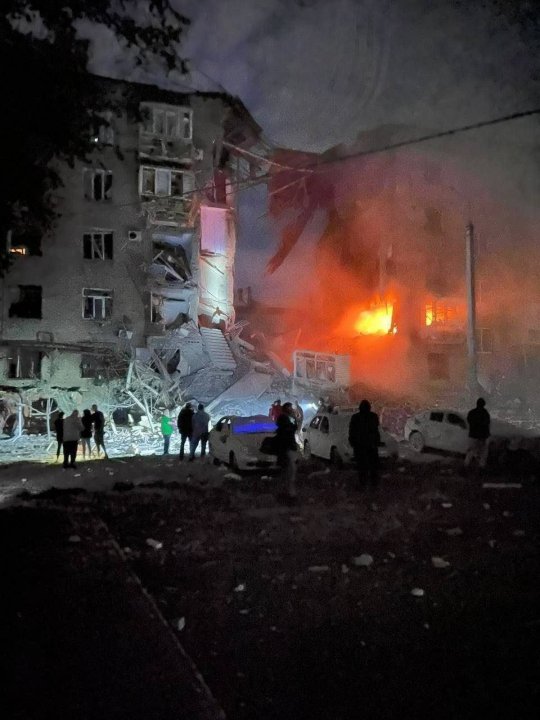
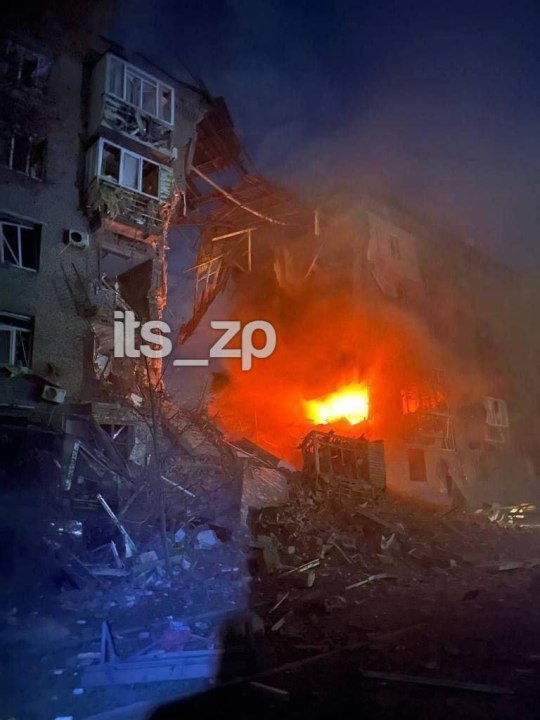
#stand with ukraine#war in ukraine#ukraine war#ukraine 2022#ukraine#russia terrorist state#russian crimes#russian invasion#fuck putin
95 notes
·
View notes
Text
it’s been a year.
it’s been a year since the worst day of my life.
February 24, 2022
a year of pain, death and darkness.
fuck you russia.
#russian invasion of ukraine (2022)#fuck putin#fuck russian fascism#fuck all the russian supporters#russia is a terrorist state#❤️🇺🇦#anz speaks
30 notes
·
View notes